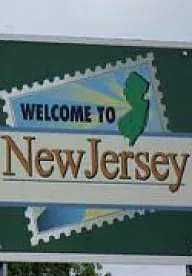On April 14, 2020, Governor Phil Murphy signed into law two amendments to the New Jersey WARN Act (the “NJ WARN Act” or the “Act”) that alleviate some of the burdens the Act and certain pending amendments placed on New Jersey employers during the COVID-19 public health emergency.
COVID-19 Mass Layoffs Excluded: Unlike the federal WARN Act, which has exceptions to the 60-day notice requirement in the event of unforeseen business circumstances and natural disasters, the NJ WARN Act did not have an exception to the notice requirement for “mass layoffs” in the event of emergent circumstances. This presented difficulties for New Jersey employers in light of the sudden and extreme impact COVID-19 had on their ability to conduct business because they were still required to provide 60 days’ notice before conducting a “mass layoff.” Recognizing this obstacle, New Jersey amended the definition of “mass layoff” under the Act to exclude layoffs due to national emergencies, among other events (i.e., fire, flood, natural disaster, act of war, civil disorder or industrial sabotage, decertification from participation in federal Medicare or Medicaid programs). As a result, mass layoffs resulting from the COVID-19 pandemic do not trigger the notice requirements of the NJ WARN Act. This amendment takes effect immediately and is retroactive to March 9, 2020 – the date Governor Murphy declared a state of emergency.
Pending Amendments Delayed Until After NJ State of Emergency Order is Lifted: In January 2020, New Jersey amended its mini-WARN statute in a number of significant respects and imposed more onerous burdens on employers in terms of WARN compliance. While we detailed each of those amendments in our January blog post, the most notable changes did the following:
-
Required employers to pay impacted employees severance of one week’s pay for each year of service;
-
Increased the notice period from 60 to 90 days;
-
Lowered the threshold for a “mass layoff” to 50 employees (even if they did not amount to 33% of the workforce); and
-
Expanded the definition of “establishment” to include a group of all of the employer’s locations in New Jersey.
Those amendments were set to go into effect on July 19, 2020.
In light of COVID-19, the April 14, 2020 amendments changed the effective date of the January 2020 amendments, from July 19, 2020 to 90 days after the termination of the Governor’s Executive Order. This delay should provide employers with additional time and flexibility to make adjustments to their workforces as the COVID-19 situation evolves.
These recent amendments should provide some temporary relief to New Jersey employers who are navigating the COVID-19 crisis. We will continue to monitor and report on further developments to this law, including when the January 2020 amendments will become effective, and similar laws in other states.





 />i
/>i

